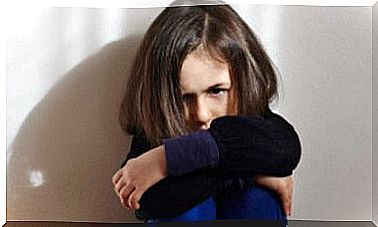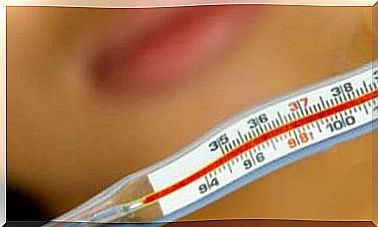Help Your Children Get Enough Sleep
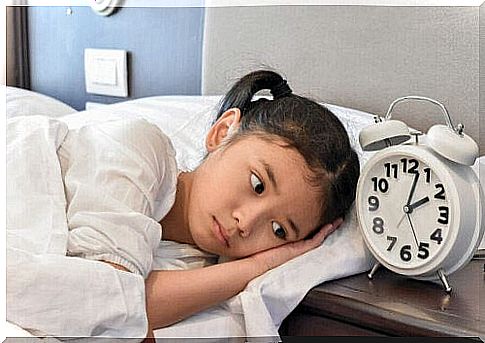
With today’s sleep guide for kids, you can help your kids get enough sleep. Also, help them find the restful rest they need for good health.
Did you know that if not treated in a timely manner, insomnia can have harmful effects ? It is therefore important for children to have good sleeping habits.
Sleep is something that our body needs to restore basic physical and psychological functions.
Help Your Children Get Enough Sleep: 5 Steps
To encourage restful sleep in your children, it is worth taking the following steps:
Follow a nightly routine related to bedtime
It is fundamental that children get used to going to bed at the same time each night. To make this possible, you should establish a routine of activities your child will do before bed, such as taking a bath, having dinner at least 2 hours before bed, setting specific times to watch TV, reading a story, etc.
The children’s sleep quality has a lot to do with their parents’ routine – and of course also with the time they wake up in the morning. You should give your children as much time to sleep as they need.
Help your children get enough sleep and pay attention to the place where your child sleeps
The room your son or daughter sleeps in should be an inviting place to sleep. That said, you should maintain a reasonable temperature there and create a cozy environment for the little ones.
Your child’s bedroom should have daylight but be kept dark at night. If your child is afraid of the dark, you can turn on a soft night light. Warm colors, such as red, are ideal for falling asleep. Make sure, however, that the light is not shining directly on your child’s face.
It is also important that children associate their bedroom with sleep at night. Your child should also always sleep in the same bed and in comfortable pajamas.
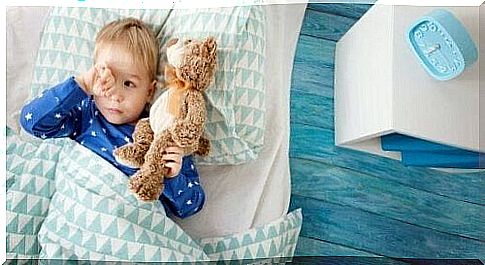
Excessive noise and distraction
Video games, televisions, and music devices should not be accessible to children before bed. Because these devices entice children to play and distract them from sleeping.
It is also important to control the noise level in your child’s room to avoid insomnia. When you wake your child, he or she may have a hard time getting back to sleep.
Help your children get enough sleep by giving them bedtime autonomy
Children need to be close to their parents to feel safe. On the other hand, they also have to learn to sleep alone in their rooms. We recommend accompanying them to sleep sometimes. However, this should not be the rule. You should also let your children fall asleep alone.
Limit physical activity at night
Another basic practice included in our children’s sleep guide is that children shouldn’t do any physical activity before going to bed. In fact, parents should limit physical activity for at least 2 hours before going to bed.
Children should also have dinner at least 2 hours before bed and stay away from sugary foods. Reduce or eliminate carbohydrate intake in the evening to aid digestion.
Also, avoid giving your children stimulating drinks such as tea, caffeine, and chocolate. Instead, provide your children with a good diet high in fruits and vegetables. All of this guarantees that your children are getting enough sleep and that their sleep is restful.
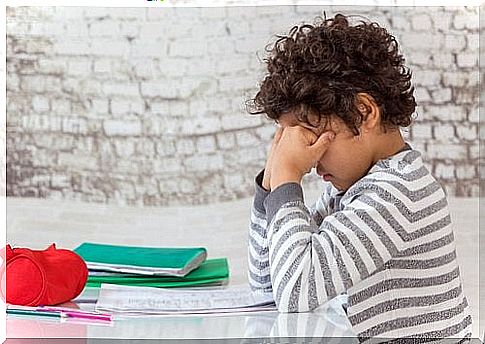
The harmful effects on children who have insomnia
When children don’t get enough sleep, the consequences for their bodies become obvious:
- Mood swings
- lack of interest in physical activity
- limited ability to pay attention and concentrate
Children who cannot rest properly suffer from emotional problems due to their imbalance.
Causes of Insomnia in Children
Most mental illnesses cause deterioration in the quality and quantity of sleep, as well as other illnesses. One of them is enuresis – a lack of control over bladder function. Other factors are environmental conditions, lighting, medication and allergies.
While establishing a routine for kids is not easy, you should be persistent and seek help from the whole family.




